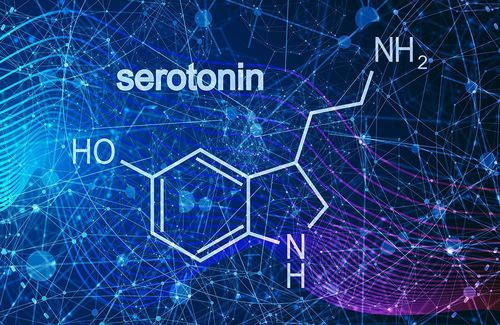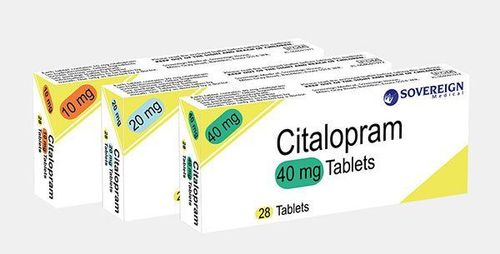This is an automatically translated article.
The control as well as the treatment prognosis for serotonin syndrome is quite good. If serotonin levels are controlled back to normal, there is no danger to the body. However, this syndrome can be fatal for the patient in the absence of proper and timely treatment.
1. Signs of serotonin syndrome
Serotonin is an important substance for the central nervous system, it has effects on target organs in the human body. Normal Serotonin in the blood will not show any special symptoms, however, elevated Serotonin will cause a life-threatening illness called serotonin syndrome.
Serotonin syndrome usually occurs when you start increasing the dose of an existing drug or when taking 2 or more drugs at the same time, in some cases reappear when switching to a new treatment. Serotonin syndrome can be life-threatening if not treated promptly.
Symptoms of this syndrome can occur within minutes or even hours after taking a new drug or increasing the dose of an existing drug. Signs of serotonin syndrome include:
Similar to serotonin deficiency syndrome, in cases of severe poisoning the patient is confused and disoriented, even irritable and anxious; In addition to the above signs, the patient also has symptoms of muscle spasms, muscle stiffness or body tremors. Other accompanying symptoms are diarrhea , tachycardia , high blood pressure , nausea , hallucinations , hyperreflexia and pupil dilation ; In some more severe cases, signs of serotonin syndrome may include symptoms such as unconsciousness, coma, seizures, or cardiac arrhythmias. Usually, the cause of this syndrome is the result of using a combination of 2 or more drugs at the same time that causes serotonin levels in the body to increase. This leads to severe muscle spasms, damage and degeneration of muscle tissues, and severe kidney damage.

Hội chứng serotonin thường xuất hiện khi bạn bắt đầu tăng liều lượng của loại thuốc đang sử dụng
2. Controlling Serotonin Syndrome
The control as well as the prognosis for treatment of serotonin syndrome is quite good. If serotonin levels are controlled back to normal, there is no danger to the body. However, this syndrome can be fatal for the patient in the absence of proper and timely treatment. Methods to control this syndrome include:
Stop all serotonergic drugs: If the patient has mild symptoms, the main treatment is benzodiazepines, after 24 to 72 hours the symptoms gradually subside. gradually disappeared and the patient was observed for at least several hours. In the case of severe serotonin syndrome, the patient needs to be admitted to the ICU for treatment of serotonin syndrome. To treat hyperthermia, it is necessary to cool the patient. In some cases, appropriate neuromuscular and neuromuscular blockade as well as muscle anesthesia and other supportive measures may be required. If symptoms of serotonin syndrome persist despite supportive measures, the serotonin antibody drug cyproheptadine can be administered orally or after NGT. The drugs Chlorpromazine and olanzapine can be effective in treating serotonin syndrome, but are generally not recommended because of the potential for side effects. However, in cases of moderate or severe serotonin syndrome, the patient should be hospitalized for neuromuscular testing, muscle relaxants, and intubation to control the condition.
3. Recommendations for clinical practice
The key recommendations that are important in clinical practice for serotonin syndrome are as follows:
To prevent serotonin syndrome, clinicians must be aware of the potential toxicities of drugs that affect serotonin syndrome. serotonergic system. Referencing guidelines and demonstrating drug interactions can help increase awareness in clinical practice. Serotonin syndrome should be diagnosed and recognized using established criteria. Compared with the Sternbach criteria, the Hunter serotonin syndrome diagnostic criteria are sensitive and specific in the diagnosis of serotonin syndrome. The first line of management and treatment for serotonin syndrome is to eliminate the drugs that are responsible for the syndrome. At the same time, give intensive care to the patient to improve the outcome of the treatment. According to medical studies, moderate to severe cases of serotonin syndrome can be treated with cyproheptadine. In short, serotonin syndrome is preventable, but sometimes it cannot be proactively prevented. Therefore, the patient needs to provide the doctor with information about the medications they are taking. At the same time, doctors and other health care workers need to closely monitor if the patient is taking a combination of drugs that can increase serotonin levels. This is very important in case the patient is switching to a new medication or the dose must be increased.
In case of suspected serotonin syndrome, it is necessary to go to a reputable hospital for timely examination and treatment. Currently, Vinmec International General Hospital is one of the leading prestigious hospitals in the country, trusted by a large number of patients for medical examination and treatment. Not only the physical system, modern equipment: 6 ultrasound rooms, 4 DR X-ray rooms (1 full-axis machine, 1 light machine, 1 general machine and 1 mammography machine) , 2 DR portable X-ray machines, 2 multi-row CT scanner rooms (1 128 rows and 1 16 arrays), 2 Magnetic resonance imaging rooms (1 3 Tesla and 1 1.5 Tesla), 1 room for 2 levels of interventional angiography and 1 room to measure bone mineral density.... Vinmec is also the place to gather a team of experienced doctors and nurses who will greatly assist in diagnosis and detection. early signs of abnormality in the patient's body. In particular, with a space designed according to 5-star hotel standards, Vinmec ensures to bring the patient the most comfort, friendliness and peace of mind.
Please dial HOTLINE for more information or register for an appointment HERE. Download MyVinmec app to make appointments faster and to manage your bookings easily.













